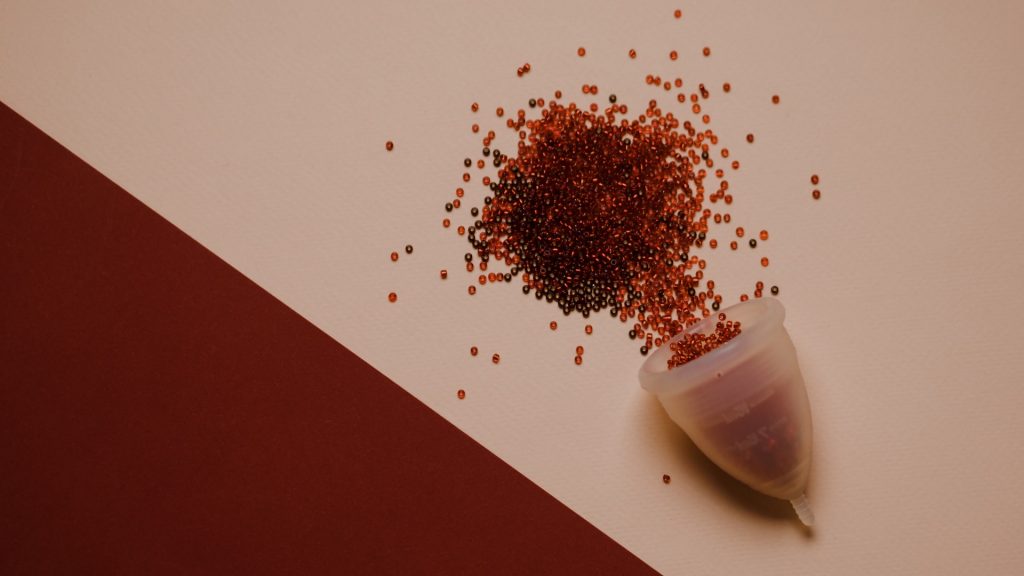Just like women, periods aren’t one-size-fits-all yet there are many period FAQs that we may not want to ask out loud. Even when we do, we may not get the best answers and can feel even more confused than before.
When women better understand their periods and what’s going on with their cycle, they can feel empowered by that knowledge and know how they can seek out the help they need when they need it. Speak to a qualified healthcare provider about all you period FAQs so you can get the best treatment for you.
Here’s our list of period FAQs and the answers every woman should know about:

How do I know if my menstrual cycle is a normal length?
A menstrual cycle typically lasts between 21 to 35 days, with an average cycle length of 28 days. One cycle is usually counted as the number of days between the start of your period until the start of your next period.
In order to find out how long your period is and to see if your cycle is regular, tracking your menstrual cycle is important. Start by marking the first day of your period on a calendar and the first day of your next period. Then count the number of days between these two dates to determine your cycle length. Do this over several months and see how many days each cycle is and if it’s consistent.
Many women are now using period tracking apps in order to keep track of your menstrual cycle and to see when they are becoming irregular. Monitoring your cycle is a great tool for understanding your reproductive health and knowing when something could be wrong.
What are normal PMS symptoms and how can I manage them?
Premenstrual syndrome (commonly known as PMS) is a group of physical and emotional symptoms that happen in the days leading up to your period.
Symptoms of PMS usually include:
- bloating
- fatigue
- mood swings
- headaches
Eating more nutritious foods, getting regular exercise, and using stress management techniques like meditation can help to alleviate these symptoms.
If you are experiencing more severe symptoms, you can talk to your healthcare provider about this period FAQ and what type of medication they would recommend to manage your symptoms.
Read more: PMDD: What is it exactly?
Why do I experience cramps during my period?
Menstrual cramps are caused when the muscles around uterus begin contracting in order to shed its lining, leading to you having a period. The uterus does the same thing during childbirth, to help deliver the baby as well as the placenta.
This is a normal symptom that many women experience during their period and while they can be uncomfortable, they should not be extremely painful to the point that you cannot do daily activities.
My menstrual cramps are painful, how can I manage them?
Dysmenorrhea is a medical name used to describe painful menstrual cramps. If you are having painful cramps during your cycle, taking over-the-counter painkillers, such as ibuprofen or paracetamol, can help to lessen the pain.
Other options include applying heat to the lower abdomen where you can feel the cramps as well as getting regular exercise. Both of these options can help to alleviate the pain caused by cramping.
Shop now: Zoie Health Period Care products
Should I be concerned if my period blood is a different colour than usual?
Period blood can range in colour from bright red to dark brown. This usually depends on the age of the blood and how long it’s been in your body for. A brighter shade is usually fresh blood while darker tones indicate that the blood is older.
However, if your period blood is an unusual colour and/or has a foul smell, it may be a sign of an infection or another medical condition. If this happens, contact your healthcare provider to find out what treatment you need.
Can period blood be a different texture or consistency?
Yes, period blood can vary in both texture and consistency. Sometimes it may be thick and clumpy or thin and watery.
Just like with a significant change to colour, if you experience significant changes in the texture or consistency of your period blood, speak with your healthcare provider about this period FAQ to find out what may be the cause of these changes and how you can treat any underlying conditions.

When should I be concerned about heavy bleeding during my period?
Heavy or prolonged bleeding during your period is known as menorrhagia. You may have menorrhagia if you need to change your tampon or pad very frequently or if you are passing blood clots larger than a R2 coin.
If you experience heavy bleeding during your period, it may be linked to an underlying medical condition such as fibroids or endometriosis.
Heavy menstrual bleeding can also affect the iron levels in your blood and can cause anemia. This is a condition when there is a shortage of red blood cells in the body.
Symptoms of anemia include:
- fatigue
- weakness
- shortness of breath
- feeling light-headed
If you have heavy periods and are experiencing the above symptoms, you may want to speak to your doctor about taking the correct kinds of supplements and medications for your needs.
Shop now: Zoie Health Vitamins & Supplements
Can I still get pregnant while on my period?
While it is less likely to happen then while you are ovulating, it is possible to get pregnant while on your period. This is especially true if you tend to have a shorter menstrual cycle.
This is because sperm can stay alive for up to five days inside the uterus and cervix. So if you have sex near the end of your period and then you begin to ovulate shortly after that, you have a higher chance of becoming pregnant.
If you do not want to become pregnant, it is important that you and your sex partner use contraceptives correctly no matter where you are in your cycle.
Read more: Which contraceptive option is right for you?
I’ve missed my period, should I be concerned?
The medical term for missing periods is amenorrhea. You do not need to be immediately concerned if you miss a period occasionally. However, if you miss several periods in a row or have not had a period for three months or longer, there may be something wrong.
Amenorrhea can be caused by a number of things such as:
- pregnancy
- stress
- being underweight
- thyroid disorders
- uterine fibroids
- polycystic ovary syndrome (PCOS)
- other medical conditions
Having irregular periods or missing your period entirely can be a sign of some type of underlying medical condition and it is best to have a healthcare professional figure out the cause and give you the correct treatment.

When it comes to your period, talking to a women’s healthcare professional about any period FAQs that you have will allow you to understand your unique cycle and get the care that’s right for you. Click here to book your virtual consultation with a Zoie Health professional today.










One Response